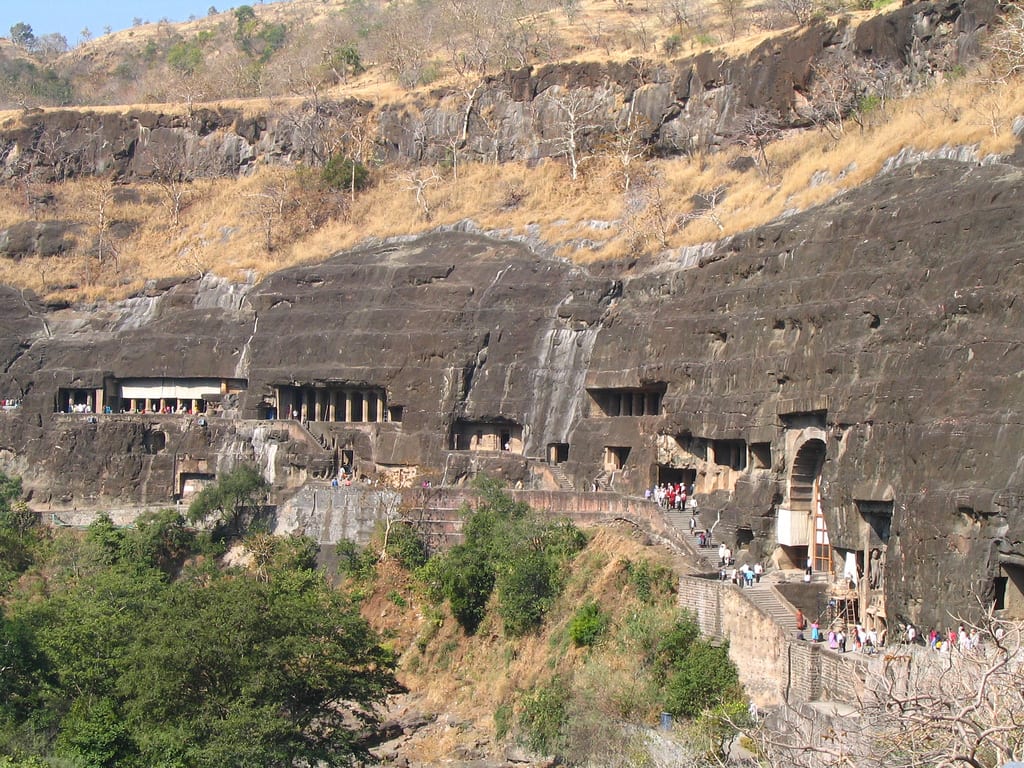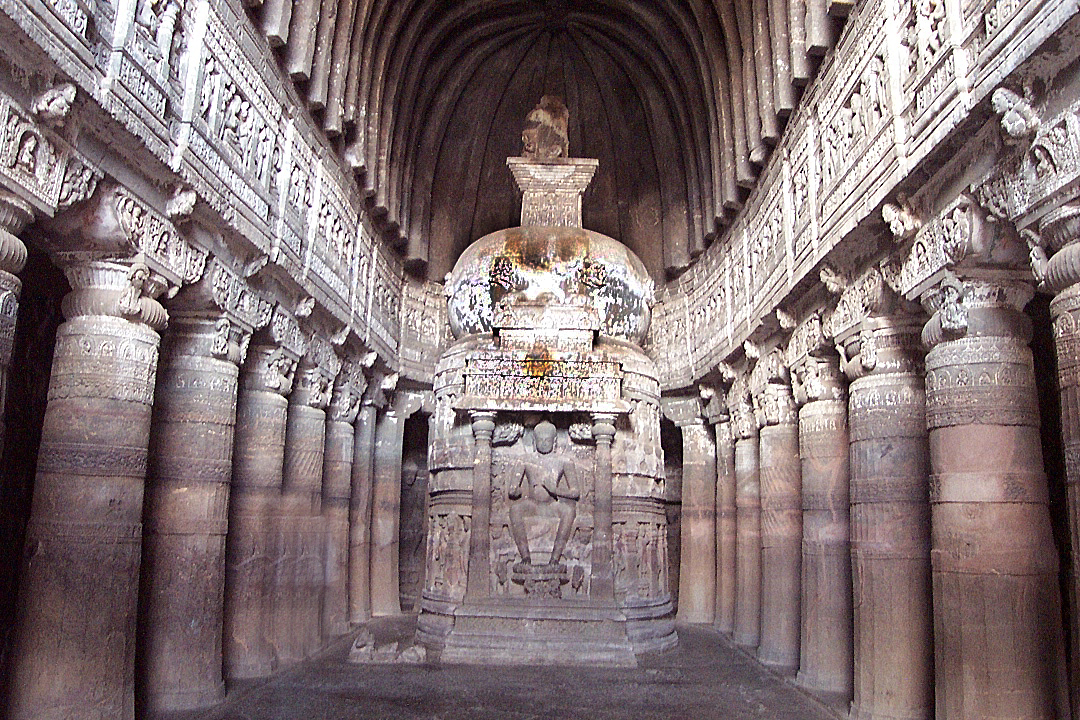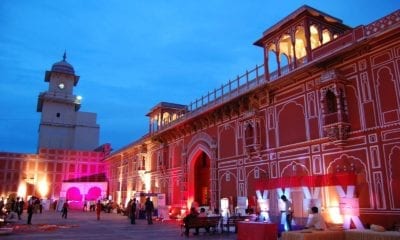Travel in India
UNESCO World Heritage Site: Ajanta and Ellora Caves

With a history spanning thousands of years, Ajanta and Ellora Caves hold a special place in history. These rock-cut caves full of beautiful paintings and ancient sculptures tell us stories of ancient times to modern and everything in between.
As such, they hold great interest both from a cultural and historical point of view and are popular among travelers, explorers, history buffs and tourists. Designated as the UNESCO World Heritage Sites, Ajanta and Ellora Caves are one of the finest examples of ancient architecture and artistry.

So here we are! In this short write-up, we will tell you all about sight-seeing in these ancient relics and all that is there to see! Though they are almost always named together, Ajanta and Ellora caves are in fact vastly different and at quite some distance from each other. Let’s cover them one by one –
AJANTA CAVES
Located about 100 km from Aurangabad District, Maharashtra, Ajanta Caves cover a vast area with around 30 different rock-cut caves, Buddhist in nature. Most of the paintings and sculptures are seen in the cave belong to the time period from 2nd century BC to 7th century AD.
Since the Ajanta caves are mainly Buddhist in nature, having been used as a retreat by Buddhist monks back then, its basic designs are called ‘Viharas’. The paintings all depict scenes from the Jatakas (stories of Buddha) and the sculptures are of Lord Buddha himself.
The Ajanta Caves offer a wonderful sight, giving us a chance to peer into the past- the time when classical Indian art was just flourishing. They also offer an important source of history, telling is about how well-regarded and widely spread Buddhism was in olden times. As such, these caves hold great interest for the followers of the religion and those who are interested in the teachings of the Buddha.
Though Ajanta Caves hold a great variety of wonderful art, there are some you just can’t miss. The painting of Bodhisattva Padmapani in cave 1 is one of the more popular and well known Ajanta paintings known to the world. It depicts the earlier life of Buddha.
Also, a ceiling painting in the same cave known as the Painting of Persian Ambassador is important as well since it depicts the ancient Indian ties with Persia. Cave number 6 in the Ajanta is full of beautiful artworks depicting the different events in the life of Buddha. These paintings cover the doorways and the double-storeyed cave’s walls while a Buddha statue can be seen seated here too.
ELLORA CAVES
One of the largest rock-cut monastery temple caves in the world- with around 34 caves, Ellora is indeed a wonder to behold. While Ajanta is primarily Buddhist in nature, Ellora features a mix of Jain, Buddhist and Hindu monasteries and temples.
Located just 30 km from Aurangabad, Maharashtra, they date later than the Ajanta caves and most of its artworks belong to the time period of the 2nd century to 11th century AD. These caves are hand carved and feature paintings and sculptures representing a mix of three of the most dominant faiths of the time that is Hindu, Jain and Buddhist. /GettyImages-620612666-5a01c5b8980207003717973c.jpg)
Apart from 5 Jain temples, the Ellora caves actually houses the Kailash Temple- the largest single monolithic rock-cut temple in the world. Dating back to 8th century AD, this temple is elaborately carved and features a painting of Lord Vishnu in his ‘Nar-Singh’ avatar.
It features many other mythological figures as well as life-size sculptures of elephants and other animals. Everything about it can only be described as grand. The 12 large caves found in Ellora were once Buddhist monasteries and a 15 feet tall Buddha statue can also be seen at the center of one of these, known as the Chaitya Hall.
WHAT ELSE TO DO
Well… that was all about these magnificent caves, after all, you would like to see some of it by your own eyes right? But coming to our next point- what else?
We have seen both the World Heritage Sites but would travel be travel if we do not eat the local specialties? Absolutely not! Good thing that Aurangabad boasts of a good food culture, especially if you are a fan of Hyderabadi cuisine.
So go, ride in the local transport or book a cab, take a look at our ancestors’ wonderful craftsmanship and eat your fill of delicious food. I mean isn’t that what travel is actually about?

































